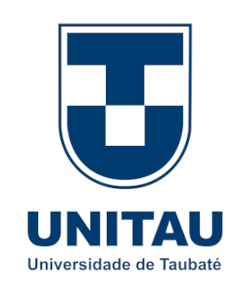About the Journal
The Revista de Ciências Exatas (RCE) or Journal of Exact Sciences in an exclusively electronic version, is a biannual publication of the stricto and lato sensu PostGraduate Program in Mechanical Engineering at the University of Taubaté (SP). It was created by means of meeting the demand for scientific production from Brazilian and international universities, aiming to encourage academic debate, dissemination, discussion, criticism and reference on the evolution and dynamics of Exact Sciences in its different dimensions within the scope of public activities. or private, focusing on Social, Environmental and Economic aspects for sustainable development.
RCE is a pluralist journal and publishes works that present original contributions, theoretical or empirical, related to the field of Exact Sciences to a postgraduate program in Engineering, values the development of interdisciplinary dialogue, opening spaces for contributions from other areas (health, engineering, architecture, psychology, history, environmental sciences) that interface with the journal's central project.
It is available for national and international collaborators and has a varied editorial board, distributed by several institutions and regions of Brazil and several other countries.
The RCE includes thematic dossiers, scientific and theoretical-methodological updating paper, reviews, research notes, case studies, interviews and special texts (guest authors, transcription of lectures, debates, and, eventually, papers presented at congresses that are of interest academic and social), when recommended by groups of researchers and approved by the Editorial Board. Unpublished contributions in Portuguese, English and Spanish are accepted for evaluation. The publication of works is conditioned to the opinions of members of the Editorial and Advisory Boards, guaranteeing the anonymity of the authors and of the reviewers throughout the evaluation process.
RCE Areas of Interest:
-
Sustainable development
-
Technological innovation projects
-
-
Industrial Automation and Mechatronics
- Automatic, integrated and flexible manufacturing systems
Methodologies and strategies involving machines, equipment, processes and human resources - Technological and scientific research and development to improve the performance of mechatronic systems (robots, industrial processes, automated plants and others)
-
The Artificial Intelligence
-
The Internet of Things (IoT)
- Automatic, integrated and flexible manufacturing systems
-
Production and Quality Management
- Planning, Technological Innovation and Productivity
- Production, Management and Operations Systems
-
Industry 4.0
-
Entreprise Resources Management Systems (ERP)
-
Lean Manufacturing
-
Supply Chain Management
-
The six sigma
- Energy and Materials
- Development and optimization of energy generation, distribution and consumption systems in industry
- Materials and manufacturing processes
-
The oil and gas
It is noteworthy that the listed themes must be articulated with the debate on Production Management, an area of knowledge with interfaces between engineering and business administration, and that contributes to interdisciplinary solutions for improving processes and optimizing the resources used in the production process.
Peer Review Process
RCE adopts the Double Blind Review system. All submitted paper will be reviewed by the editor, executive editor, members of the editorial board, scientific board or deputy editors to verify that the content of the article is appropriate for the journal and that the manuscript was prepared in accordance with the instructions for authors. The editor may reject the article if it detects: errors related to the instructions; inappropriate wording; or if, the work does not contain sufficient scientific or technological merit. The evaluation is recorded in the "Form - first phase of evaluation. The form is composed of eight criteria, namely:
-
adherence to the thematic line of the journal
-
approach given to the theme.
-
clarity of the abstract.
-
structure of the article.
-
compliance with the journal's norms.
-
scientific contribution of the article.
-
coherence, cohesion, adequate use of cultural norms.
-
use of international bibliographic references.
For each criterion a score of 1 to 3 points is assigned (Fully meets - 3 points; Partially meets - 2 points; Does not meet - 1 point). Minimum score 15 points.
For plagiarism verification, which is carried out in the first evaluation phase, we use the the software Copy Spider.
The paper approved in the first evaluation phase (Minimum score 15 points) will be sent by the executive editor to two ad hoc reviewers, specialists in the theme of the proposed article. The reviewers will receive the manuscript, without any identification of the authors, in addition to the evaluation form. All reviewers, when invited to do so, received the journal's evaluation guidelines.
At no stage of the process will the reviewers know the identity of the authors, as well as the authors will not know the identity of the reviewers.
The papers sent to the journal will be analyzed by the Editorial Board according to their specialty and will be evaluated by ad hoc reviewers according to the following criteria:
-
contribution and up-to-date technical-scientific content.
-
scientific relevance.
-
coherence between objectives, theoretical aspects, analyzed material (if applicable) and final considerations.
-
clarity and quality of writing.
-
adequacy to the journal's publication standards.
The reviewers' decisions can be:
-
Accept.
-
Accept with changes, or.
-
Reject.
In case of different opinions, the article may be sent to a third reviewer, as decided by the editor.
RCE prioritizes the publication of unpublished paper, which will have priority over paper that have been published in the annals of scientific events. RCE is not interested in publishing paper translated from foreign scientific journals.
The submission of paper will always be via the Internet and must strictly follow the rules for publication.
Editorial Flow Data 2024
Submissions received: 72
Submissions rejected: 5
Submissions accepted: 48
Average time for paper evaluation: 3 months
Rejection rate: 7%
RCE's editorial team follows Fapesp's Good Scientific Practices recommendations. http://www.fapesp.br/boaspraticas/codigo_050911.pdf
Frequency
Frequency: four-monthly (January-April | May-August | September-December)
Articles are published continuously, within the period of each issue.
Free Access Policy
This journal offers immediate free access to its content, following the principle that making scientific knowledge freely available to the public provides greater worldwide democratization of knowledge.





